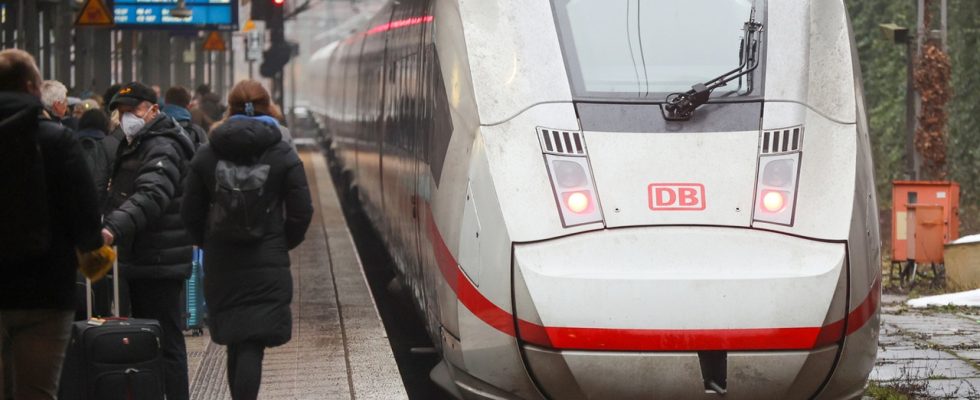The “Christmas peace” is over. There could be another strike at Deutsche Bahn starting tomorrow. A new GDL strike is still unlikely at the beginning of the week – but nobody knows what will happen from Wednesday.
The “Christmas peace” is over – strikes could soon break out again in the collective bargaining dispute between the German Locomotive Drivers’ Union (GDL) and Deutsche Bahn. After the GDL’s successful ballot among its members in the run-up to Christmas, strikes could last significantly longer than before. 97 percent of participants spoke out in favor of indefinite strikes.
However, there should initially be no strikes on Monday and Tuesday. According to dbb boss Ulrich Silberbach, an important conference of the German Civil Service Association (dbb), of which the GDL is a member, should not be jeopardized by industrial disputes at the railway. “I agreed with Claus Weselsky before Christmas that there would be no strikes during the conference in Cologne,” Silberbach told the Kölner Stadtanzeiger a few days ago. “The arrival and departure is guaranteed. What happens afterwards is no longer in my hands.”
Strikes are threatening from Wednesday
Strikes on the rails can be expected at any time from Wednesday at the latest. A rapprochement between the two sides in the collective bargaining dispute is currently not foreseeable. The railway had expanded its previous offer again on Friday. For the first time, she took up a reduction in working hours called for by the GDL. However, Group Human Resources Director Martin Seiler still does not want to know anything about the full wage compensation that is also being demanded.
The GDL would like to reduce the working hours for shift workers from 38 to 35 hours per week without sacrificing wages. The GDL has already reached such an agreement with two smaller railway companies, Netinera and Go Ahead. According to union boss Claus Weselsky, this agreement should serve as a model for the entire industry. “We are committed to achieving comparable deals in the market,” he said a few weeks ago. “We won’t let up.”
Crucial point: full wage compensation with shorter working hours
Last Friday, the railway proposed expanding existing choice models for working hours. Up to now, employees can decide whether they want more money, more vacation or fewer working days per week. You could reduce your weekly hours from 39 to 37, but you would receive 5.7 percent less pay. The railway now offers the possibility of reducing weekly working hours in this mode by up to 35 hours. If you want, you could also work up to 40 hours a week for a little more money.
Seiler emphasized that anyone who decides on shorter working hours will have to make compromises in terms of a collectively agreed wage increase. The group continues to reject the full wage compensation demanded by the GDL.
Legal confrontation about Fairtrain
The conflict is also exacerbated by a lawsuit brought by the railway before the Hesse State Labor Court. The company submitted it last Tuesday. The railway is taking action against the Fairtrain cooperative, which the GDL founded in the summer. According to Weselsky, the aim of the rental company is to poach train drivers from the railway and to loan them out to railway companies under their own tariff conditions.
The railway sees this as a conflict of interest and questions the collective bargaining ability of the GDL, which from the company’s perspective now acts as both an employer and a union. The legal dispute only marginally concerns specific questions from the collective bargaining dispute. The railway cannot prevent strikes anyway. But it could have an impact on a future collective agreement that the railway continues to strive for with the GDL.

